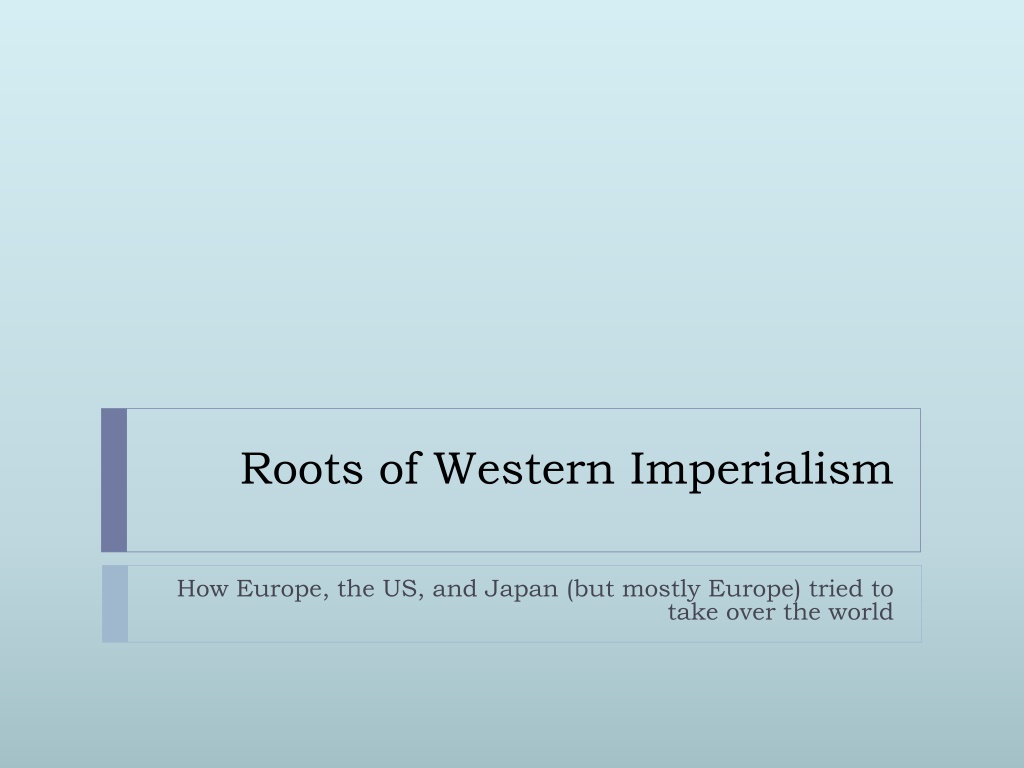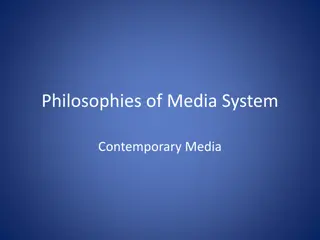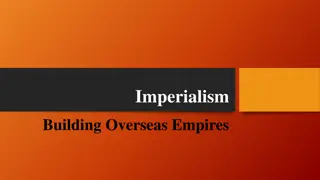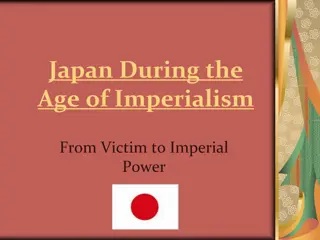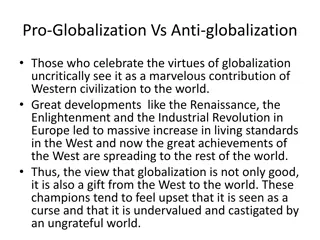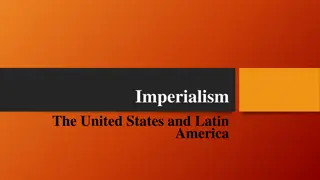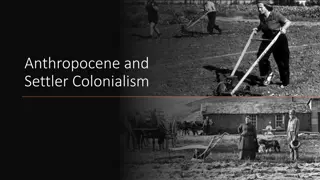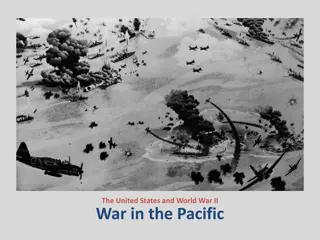Unveiling the Roots of Western Imperialism: Europe's Quest for Global Domination
Exploring the origins and impacts of Western imperialism by examining how Europe, alongside the US and Japan, sought to exert control over various regions, particularly focusing on Africa. The process of colonization, the motivations behind imperialism, and the consequences for the colonized nations are discussed, highlighting the unequal power dynamics and exploitative practices involved.
Download Presentation

Please find below an Image/Link to download the presentation.
The content on the website is provided AS IS for your information and personal use only. It may not be sold, licensed, or shared on other websites without obtaining consent from the author. Download presentation by click this link. If you encounter any issues during the download, it is possible that the publisher has removed the file from their server.
E N D
Presentation Transcript
Roots of Western Imperialism How Europe, the US, and Japan (but mostly Europe) tried to take over the world
Imperialism Imperialism is when one country takes control of another country
Imperialism Steps to building the colony: Merchants or explorers visit foreign lands If welcomed to stay, the mother country would send soldiers to protect their people The Europeans would build roads & make other improvements to protect their interests The new developed area would benefit the Europeans and all be done (mostly) without the consent of the locals 1. 2. 3. 4.
The Scramble for Africa The focus of most of Europe s imperialist activities in the 19th century was Africa. The demand for resources, markets, and the prestige of having colonies drove imperialist Europe to Africa.
The Scramble for Africa Up until the 1880 s only the coastlines of Africa had been colonized, exploited or even explored Gold, ivory and slaves had been taken from these colonies The slave trade ended in the in the 1800 s but European powers now had control of most of the African coast C014
Reasons for Imperialism After the 1880 s Europeans had technological superiority due to the Industrial Revolution Europeans fought with machine guns/Africans had spears and bows. Better maps Easier travel with the steam ship and railroads. Made travel on water or land faster and allowed for close contract with colonies. Medical treatment of malaria with the drug quinine.
Reasons for Imperialism African nations lacked unity No common language Lack of common culture Wars between different groups Lack of technology
The Berlin Conference Rules for the Colonization of Africa In 1884 European powers trying to colonize Africa were coming into conflict. To avoid further conflict 14 European powers set up rules for colonizing Africa. No members of the African community were present.
The Berlin Conference The agreement between the European powers specified European powers could acquire colonies in the following methods. Through occupation. Notifying other European states of the occupation and claim. Showing that the European power could control the area.
The Berlin Conference Results of the Conference In 1850 most of Africa had been free. By 1914 only Liberia and Ethiopia were free of European control.
Result of Colonization Europeans did not find a new market for goods in Africa Africans had little currency to buy goods. Instead Europeans found that Africa had a great deal of wealth and raw materials to supply the European nations
Result of Colonization Raw Materials Europeans developed cash- crop plantations Peanuts Palm oil Cocoa Rubber These plantations displaced food crops Africans needed to feed their families. Wealth Africa contain rich mineral resources The Belgian Congo Tin Copper South Africa Gold Diamonds
Impact of Imperialism in Africa Positives Reduced local warfare Brought hospitals and schools to Africa. Increased life spans and literacy rates. Gained railroads, dams, and telephone lines Negatives Africans lost their land Loss of independence Large amounts of the African population died of European diseases. Smallpox Loss of traditional culture Division of African nations by European boundaries Forced labor Displaced resources
